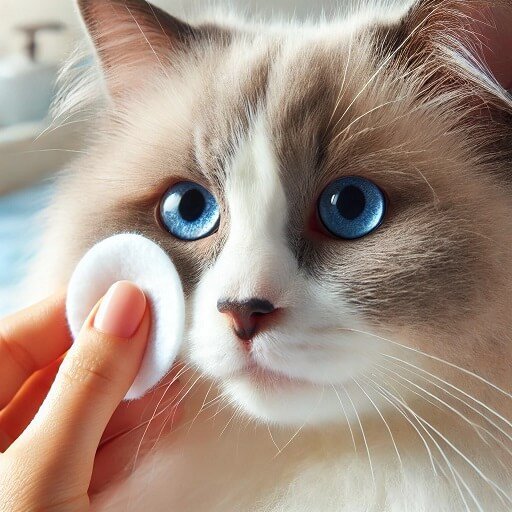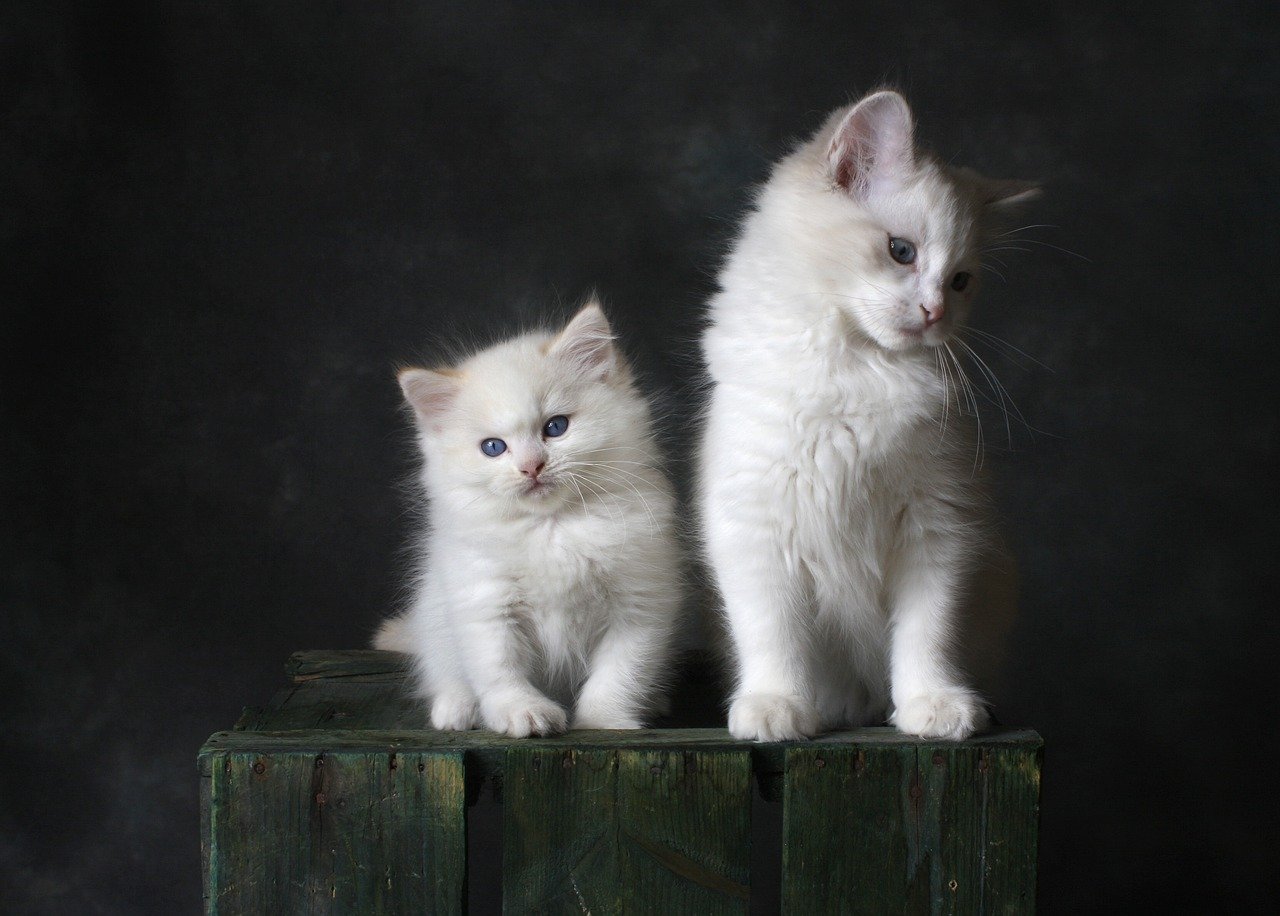Ragdoll cat nature is one of the most fascinating aspects of this breed, making them an ideal choice for families and cat lovers alike. Known for their affectionate, calm, and social personalities, Ragdolls have a temperament that sets them apart from other breeds.
Their loving nature, combined with their striking blue eyes and luxurious fur, makes them one of the most sought-after feline companions.
But what truly makes a Ragdoll unique?
Let’s dive into their personality, behavior, and what you can expect when bringing one into your home.
Ragdoll Cat Nature & Unique Personality
Ragdolls are often described as “puppy-like” cats because of their tendency to follow their owners around, greet them at the door, and even enjoy being held.
Unlike some independent cat breeds, Ragdolls crave human companionship and form deep bonds with their families.
Their gentle and docile nature makes them perfect for households with children, seniors, and even other pets.
Is Ragdoll Cat Nature Affectionate?

One of the most well-known traits of Ragdoll cats is their affectionate demeanor. They love being close to their owners, whether it’s curling up on a lap, snuggling on the bed, or simply following you from room to room. Their love for attention means they do best in homes where they won’t be left alone for long periods.
Ragdoll Cat Size
Ragdoll cats are one of the largest domesticated cat breeds, known for their impressive size and sturdy build. Males typically weigh between 15 to 20 pounds, while females are slightly smaller, ranging from 10 to 15 pounds. Their long, muscular bodies give them a majestic appearance, and they can take up to four years to reach full maturity.
In addition to their weight, Ragdolls have a long frame, with some reaching up to 40 inches from nose to tail. Their fluffy coats add to their overall size, making them appear even larger. Despite their size, they have a soft and floppy nature, often going limp when picked up, which is a signature trait of the breed.
Ragdoll kittens for sale may seem small at first, but they experience steady growth throughout their early years. Providing them with a high-quality diet and regular exercise ensures they develop strong bones and muscles. Their size makes them great lap cats, as they love to snuggle despite their large stature.
For a detailed breakdown of Ragdoll cat size, growth stages, and care tips, check out this in-depth post, which covers everything you need to know about their development.
Ragdoll Cat Nature and Interaction with Families
Ragdoll cats are naturally family-oriented, making them wonderful companions for households of all sizes. Their even-tempered personality allows them to get along well with children and other pets, including dogs.
Because they are not aggressive, they often tolerate handling better than many other breeds, making them a great choice for first-time cat owners.
Are Ragdoll Cats Playful?

While they are known for their relaxed nature, Ragdolls also have a playful side. They enjoy interactive toys, puzzle feeders, and games like fetch.
Some Ragdolls even learn tricks and respond to commands, thanks to their intelligence and eagerness to please.
Do Ragdolls Like Being Held?
One of the most endearing qualities of Ragdoll cats is their tendency to go limp when picked up, which is how they got their name.
They genuinely enjoy being carried around and cuddled, unlike many other cat breeds that prefer to be left alone.
Ragdoll Cats vs. Other Breeds in Terms of Temperament
| Trait | Ragdoll Cat | Persian Cat | Siamese Cat |
| Affectionate | Very High | High | High |
| Playfulness | Moderate | Low | Very High |
| Vocalization | Low | Low | Very High |
| Social Nature | Very High | Moderate | High |
| Tolerance for Kids/Pets | Very High | Moderate | Moderate |
Do Ragdoll Cats Have Separation Anxiety?
Because Ragdolls are so attached to their owners, they can develop separation anxiety if left alone for too long.
They thrive in environments where they receive regular attention and interaction. If you have a busy lifestyle, it’s a good idea to have another pet to keep them company or provide enrichment toys to keep them entertained.
Common Misconceptions About Ragdoll Cat Nature

Despite their sweet and affectionate personalities, some people assume that Ragdolls are completely lazy or inactive. While they do enjoy lounging around, they also love to play and engage with their surroundings.
Another common myth is that Ragdolls don’t scratch furniture or act out. While they are generally well-mannered, like any cat, they need proper training, scratching posts, and stimulation to prevent unwanted behaviors.
Ragdoll Cat Behavior Problems
Ragdoll cats are known for their gentle and affectionate nature, but like any breed, they can develop behavior problems. While they are generally well-mannered, some Ragdolls may exhibit issues such as excessive meowing, scratching furniture, or separation anxiety.
Their strong attachment to their owners can lead to clingy behavior, making them distressed when left alone for long periods.
Another common issue is improper litter box usage, which may stem from stress, medical problems, or dissatisfaction with the litter box setup.
Some Ragdolls may also become picky eaters or display food-related aggression. While they are not typically aggressive, they can occasionally show signs of territorial behavior, especially in multi-pet households.
To prevent behavior problems, providing a stimulating environment with interactive toys, scratching posts, and a consistent routine is essential. Positive reinforcement and early socialization also help shape a well-behaved Ragdoll. If issues persist, consulting a vet or an animal behaviorist can offer solutions tailored to your cat’s needs.
For a more detailed guide on managing Ragdoll cat behavior problems, check out this in-depth post, which covers practical solutions and expert tips to keep your Ragdoll happy and well-adjusted.
How to Identify a Ragdoll Cat
Identifying a Ragdoll cat is easy if you know what traits to look for. One of their most distinctive features is their striking blue eyes, which are a hallmark of the breed.

They have a semi-long, silky coat that comes in various patterns, including colorpoint, mitted, and bicolor, with shades of seal, blue, chocolate, lilac, and more.
Ragdolls are large and muscular, with males weighing between 15-20 pounds and females between 10-15 pounds.
Their bodies are long, and they have a plush, bushy tail. One of the most unique characteristics of a Ragdoll is their relaxed, floppy nature—they tend to go limp when picked up, which is how they got their name.
Their temperament is another key identifier. Ragdolls are known for their affectionate and gentle nature. They love human interaction, follow their owners around, and enjoy being cuddled. Unlike many other cats, they are not overly independent and thrive on companionship.
Final Thoughts
The nature of a Ragdoll cat makes them one of the best choices for those looking for a loving and devoted pet. Their affectionate, gentle, and social temperament ensures they fit well into family life.
If you’re looking for a cat that enjoys human interaction, is playful yet relaxed, and is incredibly loyal, a Ragdoll might just be the perfect companion for you.
Would you love to add a Ragdoll cat to your home? Their affectionate and easygoing nature makes them one of the most rewarding breeds to have as a pet.
Frequently Asked Questions
What is the personality of a Ragdoll cat?
Ragdoll cats are known for their affectionate, gentle, and easygoing nature. They love human companionship and often follow their owners around the house.
Do Ragdoll cats like to cuddle?
Yes, Ragdolls are one of the most cuddly cat breeds. They enjoy being held and will often go limp in their owner’s arms, which is how they got their name.
What is special about Ragdoll cats?
Their unique personality, striking blue eyes, and soft, semi-long fur make them special. They are also known for their dog-like loyalty and affectionate behavior.
Are Ragdoll cats good-natured?
Absolutely! Ragdolls are incredibly friendly and sociable, making them great pets for families, children, and even other animals.
Is Ragdoll a lazy cat?
Ragdolls are relatively laid-back and prefer lounging around rather than being highly active. However, they do enjoy interactive play sessions.
How intelligent are Ragdolls?
They are highly intelligent and can learn tricks, respond to their names, and even play fetch, making them one of the smartest cat breeds.
Do Ragdolls get aggressive?
Ragdolls are generally non-aggressive and have a calm temperament. They rarely show hostility and are more likely to retreat than to lash out.
Do Ragdolls fart a lot?
Like all cats, Ragdolls can have occasional gas, but excessive flatulence is uncommon unless there’s a dietary issue or digestive problem.
Are Ragdolls expensive?
Yes, Ragdolls are considered a premium breed and can be quite expensive due to their purebred lineage, unique traits, and high demand.
Previous Posts:
- Blue Bicolor Ragdoll Cat – Personality, Care, Price & FAQs
- Lynx Bicolor Ragdoll Guide: Colors, Personality & Buying Kittens
- Ragdoll Cat Eye Discharge – Causes, Treatment & Prevention
- Ragdoll Cat Kidney Problems – Causes, Symptoms & Treatments
- Ragdoll Cat Health Issues & Diseases – Symptoms, and Treatment
